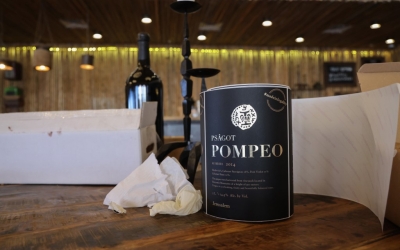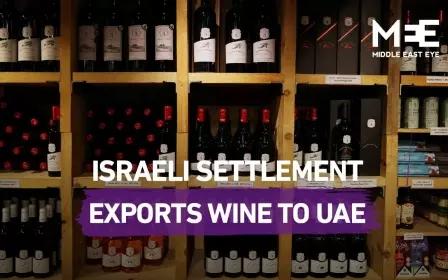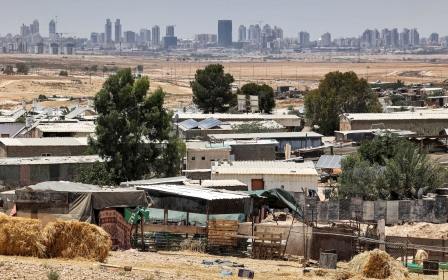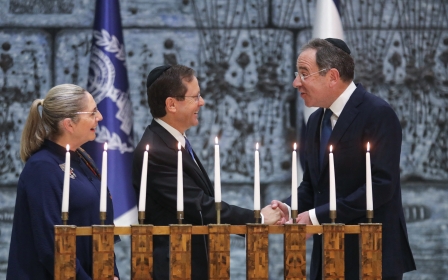US: Kamala Harris serves wine made in illegal Israeli settlement during Passover seder
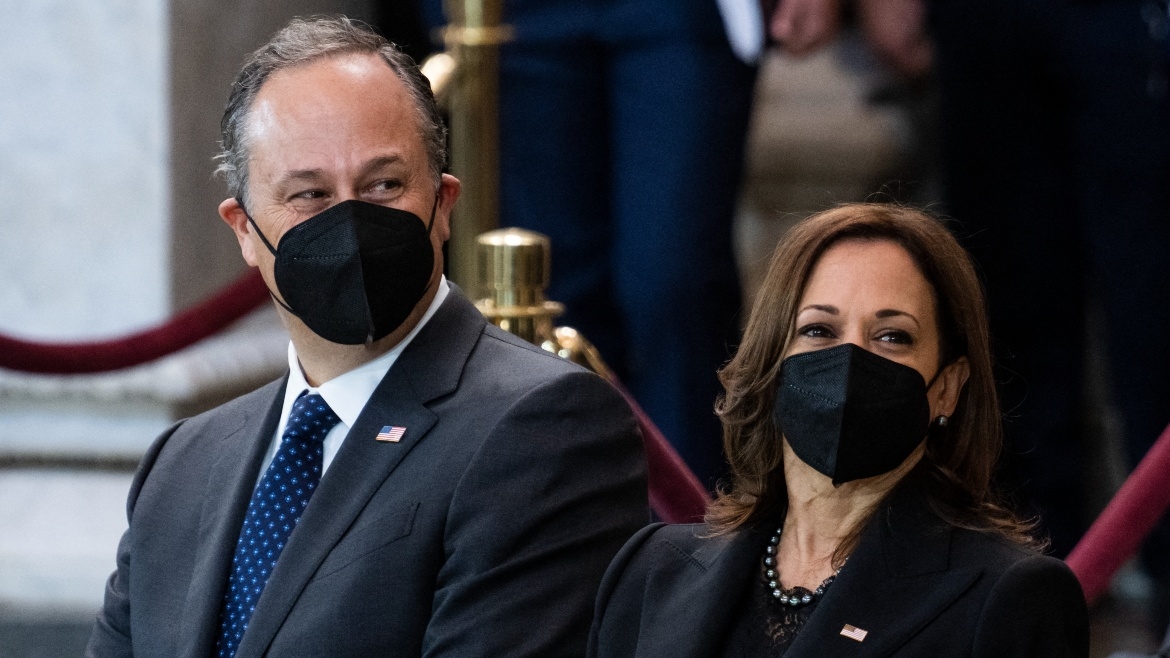
US Vice President Kamala Harris served wine that was produced in an illegal Israeli settlement in the occupied West Bank during a Passover seder she hosted over the weekend, sparking outrage from Palestine advocates and Jewish groups.
Harris and her husband Doug Emhoff, the first Jewish spouse of any US president or vice president, hosted the celebration at their residence in Washington, and Emhoff tweeted a photo of the seder, which included Jewish members of the vice president's staff.
A reporter with Channel 12 News pointed out that the wine on the table was from the Psagot Winery in the occupied West Bank.
Herbie Ziskend, a senior communications adviser to the vice presidency, took to Twitter to say that the wine served during the seder was "in no way intended to be an expression of policy".
However, pro-Palestinian groups criticised the presence of the wine, saying the use of it itself demonstrates "contempt for Palestinians" and that international policy towards the Israeli settlements is merely "lip service".
New MEE newsletter: Jerusalem Dispatch
Sign up to get the latest insights and analysis on Israel-Palestine, alongside Turkey Unpacked and other MEE newsletters
"Kamala Harris [sic] served wine from Psagot at her Passover Seder. It is produced in an illegal Israeli settlement which is colonizing the occupied West Bank. This demonstrates serious contempt for Palestinians and int’l law," Michael Bueckert, vice president of Canadians for Justice and Peace in the Middle East, said on Twitter.
The wine's presence at the seder also sparked a petition created by Americans for Peace Now, a liberal Zionist organisation in the US that aims to find a solution to the Israel-Palestinian conflict.
The petition calls on the Biden administration to overturn a policy created by the Trump administration that labels settlement products as "Made in Israel".
"West Bank settlements are not in Israel. They were constructed in occupied territory, under Israeli military occupation, with the stated objective of preventing the creation of a Palestinian state, to sabotage a future Israeli-Palestinian two-state peace agreement," said the petition, addressed to Secretary of State Antony Blinken.
"We urge you and the Biden administration to overturn the Trump-era State Department guidance that allows products manufactured in West Bank settlements to be labeled 'Made in Israel'.
"Doing so would rectify a misguided, damaging policy, and would be a significant contribution to advancing a future Israeli-Palestinian peace agreement."
Trump's 'Made in Israel' policy
The Psagot settlement was established in 1981 on the lands of al-Bireh, just outside Ramallah city in the central West Bank.
The hill where the settlement is built is known by Palestinians as Jabal al-Taweel and is the site of dozens of acres of privately-owned Palestinian land.
The winery had made headlines several years ago when it named a wine after former US secretary of state Mike Pompeo. In 2019, Pompeo declared that Israel's settlements in the West Bank were not inconsistent with international law, a move that drew widespread criticism from Palestinians.
In December 2020, the former Donald Trump administration further required that any products made in Israeli settlements, built contrary to international law in the occupied Palestinian territories, be labelled "Made in Israel".
The policy decision, however, did not create any similar changes within the international community, which continues to acknowledge that Israeli settlements on occupied Palestinian land are illegal.
The major policy shift was condemned by Palestinian and progressive Jewish organisations, who have since called for the Biden administration to reverse it.
Israel has occupied the West Bank since the 1967 war and exercises full administrative control across much of the territory, where more than two million Palestinians live.
Israeli settlements in both the West Bank and East Jerusalem breach the Fourth Geneva Convention, which outlaws the transfer of a civilian population into militarily occupied areas.
This article is available in French on Middle East Eye French edition.
Middle East Eye delivers independent and unrivalled coverage and analysis of the Middle East, North Africa and beyond. To learn more about republishing this content and the associated fees, please fill out this form. More about MEE can be found here.


